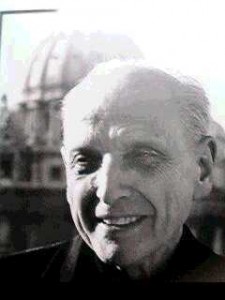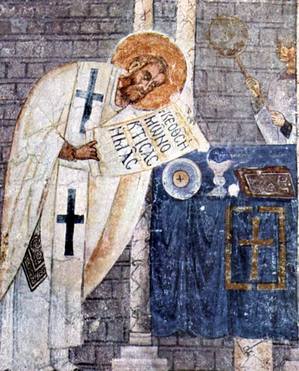Purgatory is a state, or condition of temporal purification, a purgation, punishment for temporal things in which a soul is purified of the attachment to sin; it is a condition to cleanse sins, and to more perfectly open the heart to love God more; it is a place prepare us to enter into full communio with the Trinity. The Church does not teach that purgatory is a place. The theological presumption is that before death the person is reconciled to God, others and self through the reception of the sacrament of Confession and hopefully the reception of Holy Communion (Viaticum) and the Apostolic Pardon.
Purgatory is only available to the soul found worthy by God; therefore, we say it is by God’s grace that we enter into purgatory. The word “purgatory” comes from the Latin word, “purgare” defined as to make clean, to purify. This communio is also spoken of as the beatific vision, beatitude, heaven.
What’s the purpose of the doctrine of purgatory? We have to made pure by a cleansing that happens in the state of purgatory. Once you leave earth you can’t change the direction of your soul: either heaven or hell. Purgatory is a preparation for heaven, if that is the judgement of God. It is a common error to think that if your soul goes to purgatory that you are eternally damned. Not so. That a soul goes to purgatory one is saved. They are the second happiest souls after the saints.
Souls in purgatory can’t pray for themselves but our prayers and good works help the souls in purgatory in the process of purification so that in God’s time they can enjoy life eternal with God, and they can pray for us.
Sins in this life are a part of a purgatory on earth and before entering into God’s presence those sins need to be forgiven, purged and the soul made pure. Suffering does put us in touch –it is a matrix of holiness– with our dependence on God.
The bible’s teaching on purgatory is based on 2 Maccabees 12:43-46, Matthew 12:32, Luke 21:59, 1 Corinthians 3: 11-15, Hebrews 5:7, Hebrews 7: 25, Hebrews 12:11, Revelation 21:27.
The Church refined her teaching several times in history due to greater knowledge revealed by God. The Fathers of the Church and certain other theologians taught the doctrine of purgatory as necessary for salvation and each has a his or her particular nuance on the truth but none contradict the substance. At the Council of Trent, due to the Protestant critique, formally taught:
Whereas the Catholic Church, instructed by the Holy Ghost, has from the Sacred Scriptures and the ancient tradition of the Fathers taught in Councils and very recently in this Ecumenical synod [Trent] (Sess. VI, cap. XXX; Sess. XXII cap. ii, iii) that there is a purgatory, and that the souls therein are helped by the suffrages of the faithful, but principally by the acceptable Sacrifice of the Altar; the Holy Synod enjoins on the Bishops that they diligently endeavor to have the sound doctrine of the Fathers in Councils regarding purgatory everywhere taught and preached, held and believed by the faithful. (Denzinger, Enchiridon, 983)
While this passages does not spell out the doctrine, it does say that the Church’s teaching is consistent.
Who are Church Fathers referred to in the above paragraph? Among them, they are: Isidore of Seville, Ambrose, Augustine of Hippo, Jerome, Origen, Tertullian, Gregory the Great, Bede the Venerable, Bernard, and Robert Bellarmine; the popes of the 20th and 21st centuries have this teaching.
With the publication of the Catechism of the Catholic Church, we have a clear teaching (1030-31):
On 4 August 1999, Pope John Paul II said,
It is necessary to explain that the state of purification is not a prolungation of the earthly condition, almost as if after death one were given another possibility to change one’s destiny. The Church’s teaching in this regard is unequivocal and was reaffirmed by the Second Vatican Council which teaches: “Since we know neither the day nor the hour, we should follow the advice of the Lord and watch constantly so that, when the single course of our earthly life is completed (cf. Heb 9: 27), we may merit to enter with him into the marriage feast and be numbered among the blessed, and not, like the wicked and slothful servants, be ordered to depart into the eternal fire, into the outer darkness where “men will weep and gnash their teeth’ (Mt 22: 13 and 25: 30)” (Lumen gentium, n. 48).
There is more one can say of the doctrine of purgatory, but I hope these few paragraphs a door is opened.





